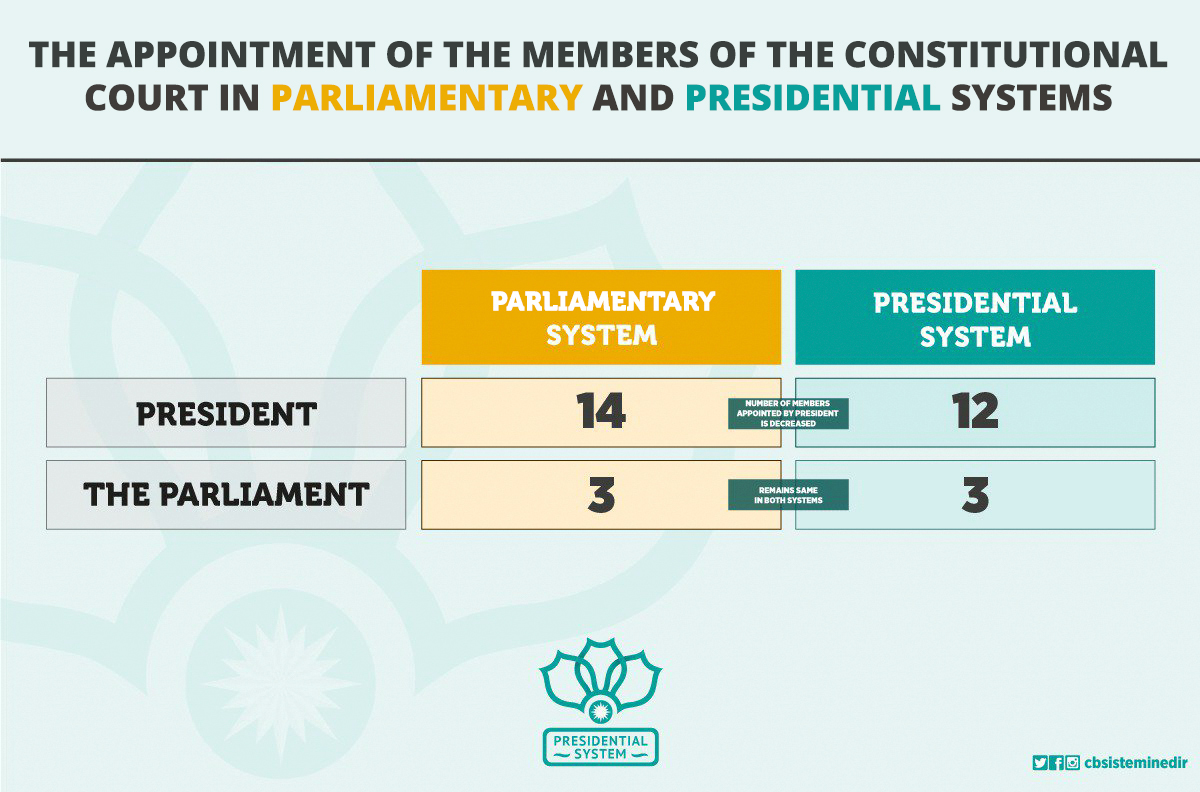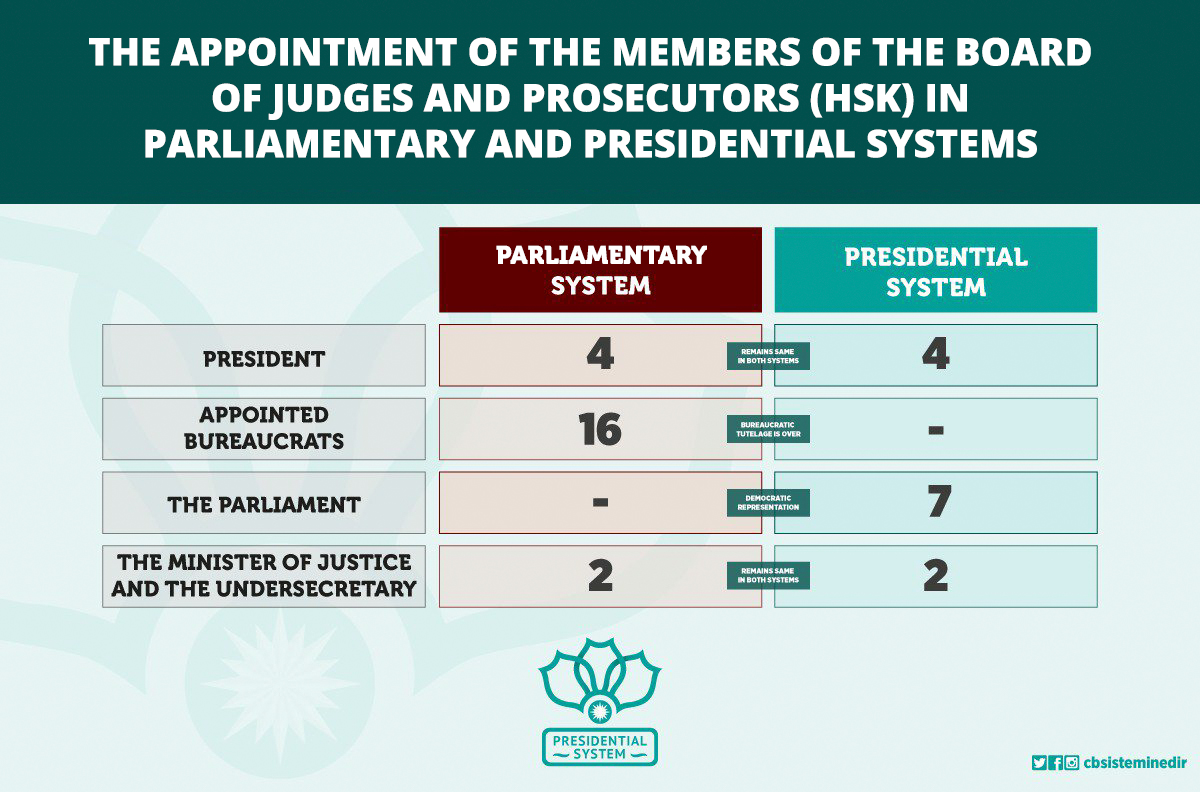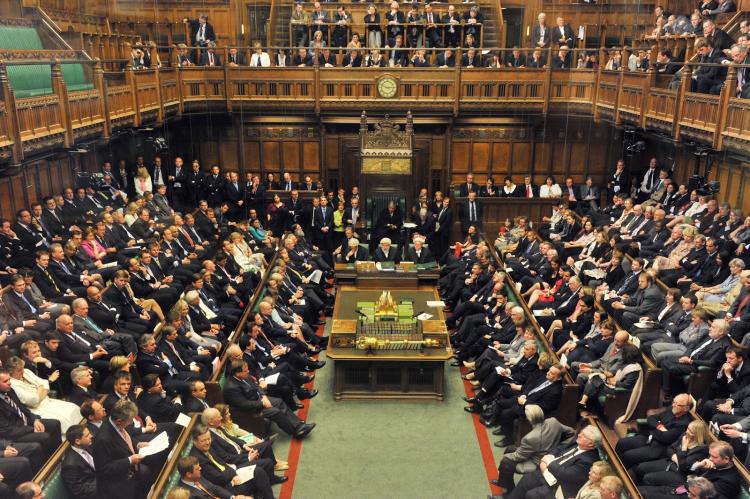House of Commons debate on Turkey contains factual mistakes
House of Commons of UK is holding a parliamentary debate about Turkey's presidential and parliamentary elections and briefing document of debate includes factual mistakes on issues such as Turkey's presidential system, election campaigns during state of emergency and rule of law in Turkey
The House of Commons of the United Kingdom is holding a parliamentary debate titled “Early elections, human rights and the political situation in Turkey” on 7 June 2018. The House of Commons Library published a briefing document for the debate 'to provide a summary or overview of the issue being debated'. However, the briefing includes several factual mistakes about the issues which will be discussed, mainly about the presidential system which will enter into force after the June 24 elections, Turkey’s state of emergency’s effect on the election campaigns and the rule of law in Turkey.
Claim: “The president will dissolve the parliament”
The briefing document claimed that “[t]he President will have the powers to... dissolve parliament.”
This is probably the most widespread false claim. In fact, the president could dissolve the parliament prior to the constitutional referendum whereas this prerogative was cancelled in the constitutional referendum.
The latest example of the parliament’s dissolution by the president occurred in the 2015 general elections when the parliament failed to form a coalition government for almost three months after no party gained enough seats needed to form a single-party government.
On 24 August 2015, President Recep Tayyip Erdogan decided to renew the elections without being affected by this decision. That is to say that he remained in power because his office was not subject to the decision of renewing the elections – which is why this practice was called “dissolution.”
But now, the new version of the Article 116 of the constitution which regulates the dissolution of the parliament says that the presidential elections should also be renewed if the president decides to renew the parliamentary elections. While dissolution requires by definition remaining untouched by the act of dissolving, the president’s office also will be affected by the parliament’s “dissolution” – which is why it can no longer be called dissolution.
The article also foresees that the president, who can run for two terms under normal conditions and for an additional third term if the parliament renews the elections in the second term of the president, will lose the rest of the term in which they renewed the elections. This consequence of the decision to renew the elections implies that the decision can be made only in extraordinary circumstances.
Claim: “Presidential decrees will have the force of law”
The briefing document stated that “[t]he President… will have powers to issue decrees with the force of law.”
However, the president’s power to issue decrees is restricted both in scope (president will not be able to issue decrees related to the civil rights and liberties) and by the parliamentary supervision since the parliament can overturn the presidential decrees. Most importantly, the presidential decrees will not have the force of law except in the state of emergency period.
The new version of the Article 119 of the constitution says that the president will have the right to issue decrees having the force of law (DHFL) during a state of emergency. At times other than a state of emergency, the president issues presidential decrees but cannot issue DHFL, which are different notions. In terms of the hierarchy of norms, laws/codes are superior to both DHFL and presidential decrees. Also the president cannot issue presidential decrees on issues related to the civil rights and liberties under the Article 119. The related part of the article reads as follows:
“The President can issue decrees on subjects concerning the executive. The fundamental rights, personal rights and duties in the first and second divisions, and the political rights and duties in the fourth division of the second section of the Constitution cannot be regulated by Presidential decrees. The President cannot issue decrees on issues that the Constitution says will be specifically regulated in code. Issues which are conspicuously regulated by code are exempt from Presidential decrees. When a code and a Presidential decree have different prescriptions, that of the code applies. A Presidential decree is annulled when the parliament issues a code on the same subject as the decree.”
In the parliamentary system, DHFL are issued by the Council of Ministers and are submitted to the parliament for discussion. If the parliament ignores the discussion, there is no legal consequence of this omission: the DHFL remains active. In the proposed system, a DHFL issued by the president is also presented to the parliament but if it is not discussed and given the final decision within three months, that DHFL is annulled. The related part in the same article reads as follows:
“Except for when the Grand National Assembly of Turkey cannot convene due to war and casus fortuitus, the presidential decrees issued in a state of exception will be discussed in and be decided by the Grand National Assembly of Turkey within three months. Or else, Presidential decrees issued in a state of exception will be canceled on their own.”
Claim: “President will appoint some of the top judges”
The briefing document also stated that “[t]he President will… appoint some top judges,” as an example extending the powers of the president.
However, this statement is misleading because the president already appoints some of the top judges in the parliamentary system. In fact, the number of the top judges appointed by the president is decreased in the presidential system.

The table shows that the number of members assigned by the president was decreased from 14 to 12, with two members of military origin of the Court being removed from membership. But more importantly, the Court’s members’ time in office far exceeds that of the president. After the constitutional change in 2010, the Constitutional Court’s members’ time in office was limited to 12 years which previously ended at the age of retirement, 65.
Given that a presidential term consists of five years, a president who is elected for one term will not be able to replace most of the members of the Constitutional Court. Technically, it is possible that a president can rule for almost three terms (around 15 years) by way of popular elections and can refresh the Court entirely. However, such an exceptional circumstance can but take place through democratic procedures.
The other prominent judicial institution is the Council of Judges and Prosecutors (HSK) which was previously named the High Council of Judges and Prosecutors (HSYK). The word ‘High’ was dropped because there were no other councils under the HSK to render it higher. The HSK used to consist of 22 members, 16 of which were appointed bureaucrats. The assignments of the HSK were taking place within a closed circuit of judicial bureaucracy.

With this constitutional change bill, the number of the HSK's members were reduced to 13 and the parliament was given the right to elect seven members of the Council, thereby opening the closed structure of the institution to the democratic legitimacy of the popularly elected bodies and offices. With the number of members assigned by the president remaining the same, the parliament will assign more members than the president.
Claim: “The credibility of the elections during the state of emergency is under question”
The briefing document included the motion of the member of the parliament Ann Clwyd questioning “the credibility of the elections under the state of emergency.”
However, the widespread campaigns of the opposition parties and candidates show that the argument is incorrect. The state of emergency in Turkey does not automatically forbid campaigning or nor does it abolish the right of assembly. Since the state of emergency is declared, many large demonstrations and protests have been organized in Turkey. Click here for the details.
There are six presidential candidates whose names will be on the ballots and eight political parties which will compete for the seats in the parliament. The Republican People’s Party’s (CHP) candidate Muharrem Ince has held 63 campaign meetings across Turkey with tens of thousands of people attending since May 9. Another presidential candidate Meral Aksener, who is also the leader of İyi Parti, has organized 31 campaign meetings since May 22. Another presidential candidate Temel Karamollaoglu plans to hold at least 20 campaign meetings until the elections.
The political parties having at least 3 per cent votes in the latest general elections also receive treasury grants according to their shares of votes in order to enable their campaigns before the elections. In this regard, the ruling Justice and Development Party (AK Party) received 270.9 million Turkish liras (approximately 45 million in GBP) for the campaigns of the upcoming snap elections. The opposition’s CHP received 138.5 million Turkish liras (approximately 23 million in GBP). National Movement Party received 10.8 million in GBP and Peoples’ Democratic Party received 9.8 million in GBP.
Claim: “Free campaign and mainstream media coverage of opposition candidates is an urgent matter in Turkey”
The motion of Ann Clwyd also claimed that it is an urgent matter in Turkey to “allow all politicians standing for election to campaign freely and receive comparable mainstream media coverage”.
The campaign meetings of all presidential candidates are broadcasted alive. In a week, only in state-run TV channel TRT Haber (TRT News), 125 minutes of Ince’s meetings are broadcasted live. Mainstream private TV channels also broadcast opposition’s campaign meetings, host presidential candidates in three hour-long debates. Since launching his campaign, Muharrem Ince appeared in live-debates at least four times on CNN Turk, Fox TV, Haberturk and STAR TV. Temel Karamollaoglu was hosted by Haberturk and Fox TV and Meral Aksener was hosted by FOX TV on June 6. Other than these mainstream TV channels, the candidates continue to appear on other TV channels. The newspapers continue to publish their pledges to the voters and the candidates continue to campaign actively on social media.
Claim: “People arrested and civil servants dismissed arbitrarily during the state of emergency”
The briefing document stated “nearly 160,000 people have been arrested during the 18-month state of emergency; and 152,000 civil servants dismissed, many totally arbitrarily”.
However, the actions were not brought arbitrarily, but they were brought against the members of FETO whose affiliations are determined based on solid criteria.
First and foremost, using the encrypted chat application ByLock is considered evidence of FETO affiliation. ByLock is an encrypted chat application which is exclusively used by FETO members. The application cannot be used without a private code in the first place even if one downloads it. It operates with a special reference system. A cryptologist at Johns Hopkins University in the US examined the app’s code after Reuters contacted him. He said that the ByLock network generates a private security key for each device, intended to keep users anonymous.
Other than ByLock, which according to the rule of the Turkish Supreme Court can be considered a sole evidence of membership to Gulen’s network , there are other criteria indicating someone’s FETO affiliation beyond reasonable doubt. At least the majority of these criteria have to be present in order to accuse someone of FETO affiliation.
These criteria are as follows:
- Investing money in Bank Asya (FETO-linked bank) and in other financial institutions of the “parallel structure” (another commonly used name for FETO)
- Being a member of FETO’s syndicates or associations
- Using encrypted communication applications such as ByLock
- Donating to FETO’s social aid organization Kimse Yok Mu
- Being mentioned in reports produced by the police, MIT (The National Intelligence Organization of Turkey) and MASAK (The Financial Crimes Investigation Board of Turkey)
- Giving support to FETO on social media
- Being promoted in a short span of time or being assigned to prominent offices exceptionally
- Transferring money to the organization under the guise of himmet (alms)
- Being subject to reliable denunciations, testimonies and confessions
- Visiting FETO-linked Internet sites regularly
- Undertaking the back-door businesses of FETO-linked corporations and protecting them
- Accompanying the people in the judiciary and the police who are determined to act in favor of the organization
- Supporting FETO in the last years after having resided in houses of the organization
- Being mentioned in the information given by colleagues and friends as FETO supporter
- Continuing to enroll their children in the organization’s schools and maintaining the organization’s newspaper and magazine subscriptions
Claim: Journalists arrested in Turkey “for verbal act offences”
The briefing document mentioned “300 journalists have been arrested on the grounds that their publications contained ‘apologist sentiments regarding terrorism’ or other ‘verbal act offences’ or for ‘membership’ in terrorist organizations.” Although the document presents the arrests as a countermeasure of these persons’ publications, those “journalists” were arrested on petty offences which are irrelevant with their publications in most cases. Here are some examples:
Can Dundar
- Obtaining information on state security.
- Political and military espionage.
- Spreading terror propaganda.
- Dundar’s daily Cumhuriyet published pictures of trucks belonging to the National Intelligence Agency (MIT) carrying ammunition for Syrian rebels. Dundar first claimed that the weapons were heading for DAESH but contradicted himself in his court defense saying “We don’t know where they were going to.”
Hatice Duman
- Being engaged in activities in the name of the Leninist communist illegal organization (MLKP/MK) listed as terrorist by Turkey and keeping firearms at the cell house where she lived.
Mustafa Gok
- Being a member of the DHKP-C, a terrorist organization which is known to have carried a number of assassinations and suicide bombings aimed at police forces, a prosecutor, civilians and the U.S. Embassy in Turkey.
Kenan Karavil
- Working as the regional manager of the KCK, which is the urban group of the PKK terrorist organization.
Abdulcabar Karabeg
- Being a member of the PKK terrorist organization.
- Threatening citizens during the referendum process in 2017 to prevent them from voting.
Erdal Susem
- Being a member of the PKK terrorist organization and TKPML-TİKKO, a Maoist guerrilla organization.
Faysal Tunc
- Being a member of the PKK.
- Working to provide new recruits for the armed mountain division of the PKK terrorist organization.
Sevcan Atak
- Aiding the PKK terrorist organization.
- Hiding an individual to elude tracking by security forces.



